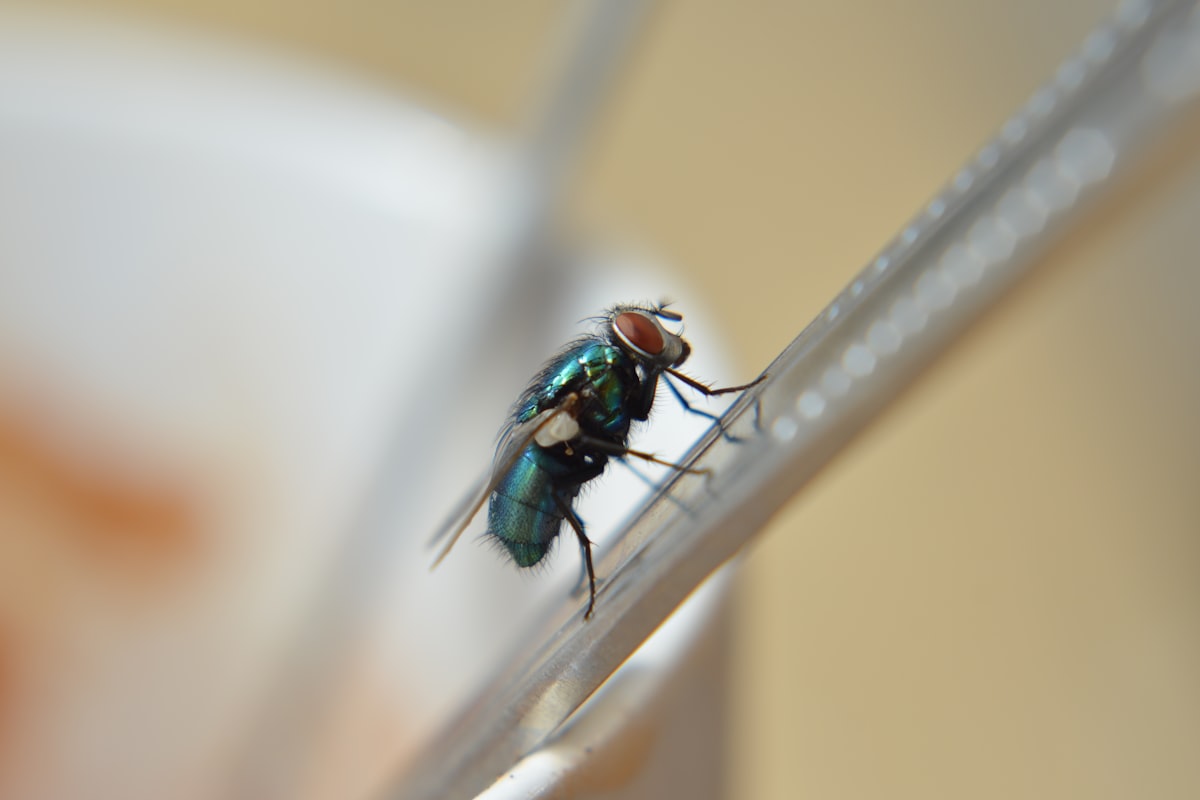butter Flies
Flies know death. The cold carcass of the body a grand hiding place from the seasons.

They landed on everything, the flies, the butter was crawling with them. Mum barely swatted them away anymore. When she brought the toast to her teeth you could hear the crunch, imagine the wings sticking between her teeth like cellophane, gossamer veils drawn.
You focused on the way they moved, spinning in patterns, curving through the air and hovering, a constant droning in your ears. All day, shedding their heat by the shade of the veranda. Back then you hadn’t grown used to them, being a child, not accustomed to the droves of filth that moved in when the season changed. Now you barely paid them any mind, perched on your shrivelled lips like peeling skin.
It was the summer that lured them in, searching for any cool drop of butter, ice, or sweat they could get their grubby, wiry feet on, a vector of disease. They landed on Dad, leaned back in his armchair with his eyes open but glazed over, as if he was sleeping in secret. Sometimes he did that, snoring in time to the six o'clock news while Mum made inane comments between headlines. Age leant one to an acceptance of the shared inhabitance.
You remember whining about the trek to school, how every step was another inside the beast of the hot cloud that sat on the land. The flies there found solace on the insides of your nostrils, climbing from chin to mouth, clamping shut your eyes. From behind, your back became a constellation of winged rot. You felt they were eating you alive, having learned how they flock to death. You remember then spread across the remains of roadkill, a bird or a cat, covered by flies as if they were keeping it secret. Maybe you had already started to decompose.
The fly screen door had holes in it so its name no longer claimed to protect you from nearing insects, but rather implied an entryway for the grimy bastards. Mum wasn't bothered to repair the door. It cost more to fix it than it was worth. Your life was embedded in the outdoors anyway, electricity spared in the day by your being forced to play in the yard, giving your mother a reprieve while you tunnelled in the dust; drawstring hats keeping the sun from you at school or else condemning you to the shade area—a heavy canvas canopied over the tuck-shop line. Flies penetrated, sat on your ice cups so specks of black dirt marred the surface. You would've refused to eat them if they hadn't cost you your hard fought for dollar.
Dad’s breathing had quietened to a beat. The sweat clung to him, following the line from his forehead down to his chin.
Mum had a fly crawling across her nostrils, hour-glass-backed, slow-moving. It made you cringe, skin fresh at the thought of the feaces spreading thin inside her gaping nose. She took the butter to the bread so crumbs flew, the crusty pull of metal against toast like velcro, drawling. She called for your dad once: breakfast is ready!
You watched a fly make home on the turquoise ceramic dish holding your breakfast. It moved so slow, like it had nowhere to be. It was peculiar, leading a life so freely, flying from house to house where gaps in the hardwood, or dips in your bowl of cereal—that pale lake, lead to cool escapes from the hardy Queensland summers. Even in the rain, the heat didn't relent. The flies lived here full time. You wondered where they escaped to in the nightfall.
Mum called again: John, breakfast. Your father didn’t move.
Flies know death. The cold carcass of the body a grand hiding place from the seasons. Like people, some insects know and others don’t. You had all been decomposing since birth, your father especially so since that morning's weather report warned of hot winds and chilling nights ahead. He would not need to worry about all that was forecast anymore.
You sat out on the veranda when the paramedics arrived. A tall man in a blue uniform laid your father out on a stretcher, pressing a cold compress to his forehead. They hadn't accepted his fate yet. You watched the flies gather, swarming around his mouth, slightly ajar. It was funny, he bounced at the paramedics lifting him up, so that his mouth shut on a fly half in and half out. You could see it squirming.
You moved forth, the stretcher stopping as you neared it. You slipped a finger in your father's mouth, lifting it so the lips popped wetly open, peeling apart like an orange from its flesh. You expected the fly to spring up and out, buzzing away in disoriented circles. Instead, it disappeared inside the cavern of your father's face, crawling down his hot, dry throat, growing colder and drier by the minute.
Helena Pantsis (she/they) is a writer, student, and artist from Naarm, Australia with a fond appreciation for the gritty, the dark, and the experimental. Her works have been published in Overland, Island, Going Down Swinging, and Meanjin. More can be found at hlnpnts.com.



